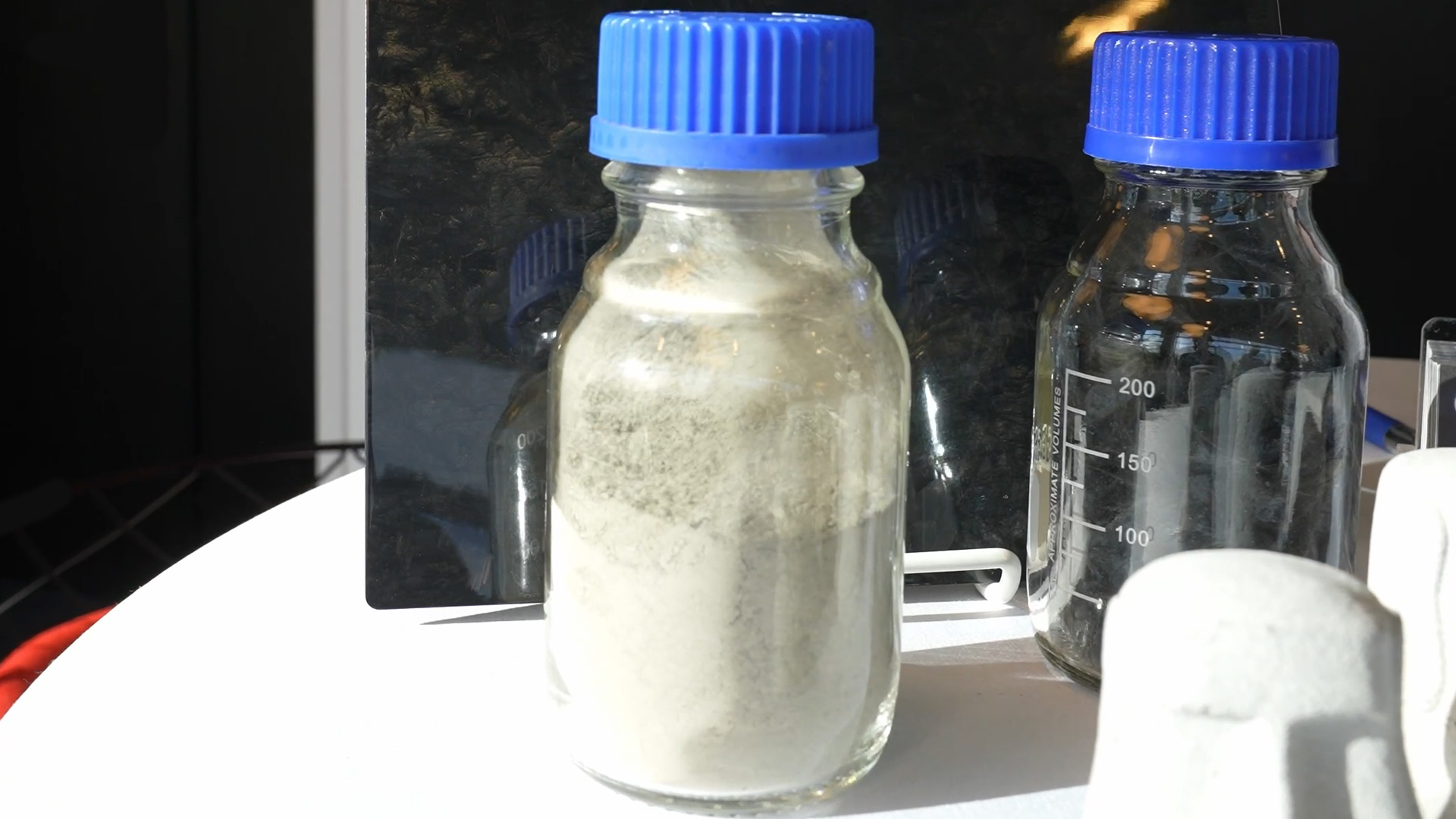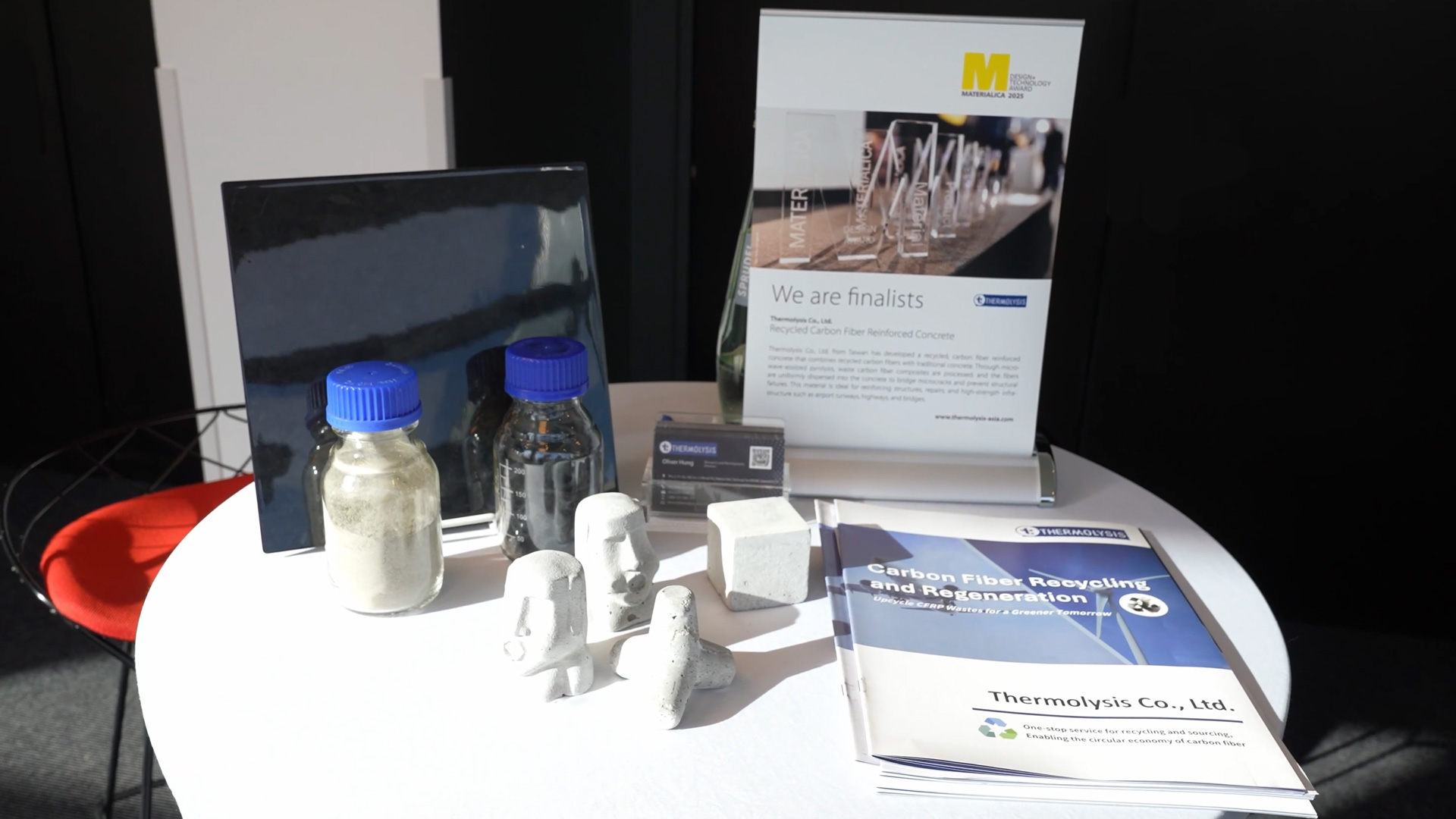The Taiwanese company Thermolysis Taiwan specializes in recycling carbon fibers using thermolysis technology. Thermolysis is one of the few providers worldwide that has mastered the industrial process of transforming carbon fibers from production waste into reusable high-performance materials. The resin is removed through controlled heating, while the structure of the fiber remains completely intact. This precise separation makes it possible to reuse valuable carbon fibers in thermoplastics, thermosets, or cement composites. The result is lightweight, robust, and resource-saving materials that can be processed in a variety of ways. With this technology, Thermolysis Taiwan is creating a basis for sustainable material cycles in several industries.
One of Thermolysis's main focuses is the development of recycled carbon fiber building materials that are establishing themselves as an alternative to conventional concrete. The combination of recycled carbon fiber, cement, and water creates high-strength, durable, and at the same time lighter building materials. These can be mixed and molded directly – without any complex additional processes. The possible applications range from residential construction to military projects and infrastructure measures where stability, durability, and environmental compatibility are crucial. The carbon fiber increases tensile strength, reduces cracking, and significantly extends the service life of the components. Thermolysis is thus opening up new avenues in sustainable building material production – ecologically, technically, and economically convincing.

An outstanding example of industrial circular economy is the collaboration between Thermolysis Taiwan and bicycle manufacturer Giant. Thermolysis uses carbon fiber residues from bicycle production to create new materials that are reused in the company's own manufacturing process. For example, injection-molded pallets are made from recycled carbon fiber, which are used in the final assembly and surface finishing of bicycles. This model project is called Cross-Loop – a closed loop that saves raw materials, avoids waste, and reduces CO₂ emissions. Through this partnership, Thermolysis is proving that recycling is not only ecologically sensible, but also industrially scalable.
The recycling of carbon fibers poses high technical challenges. Unlike conventional continuous fibers, recycled fibers are short, light, and irregularly arranged, which makes them difficult to process. Thermolysis has therefore developed its own processes to make these fibers industrially usable. These include carbon fiber nonwovens and prepregs that can be combined with epoxy resin or thermoplastic films. These can be shaped using thermoforming and result in components with a unique, organic structure. Each element's pattern reveals its origin from recycled material – an aesthetic and sustainable statement at the same time. These product forms greatly simplify further processing. Customers can integrate them directly into existing manufacturing processes, such as in the production of panels, cladding, or technical components.

The advantages of recycled carbon fiber lie not only in environmental protection, but also in economic efficiency. The market price for new carbon fibers is high, while their production is energy-intensive. Recycled carbon fibers from Thermolysis offer comparable mechanical properties, but are significantly more resource-efficient in production. Energy consumption is significantly reduced, as is the carbon footprint. At the same time, the material properties remain almost identical to those of new products in terms of strength, weight, and processing. This makes Thermolysis products attractive to companies that want to combine sustainability and performance. With this combination of environmental responsibility and industrial feasibility, Thermolysis Taiwan is positioning itself as a technological pioneer in carbon fiber recycling solutions.

There are only a few companies worldwide that can process carbon fibers on a large scale. Thermolysis Taiwan is one of these pioneers, combining thermolysis expertise, materials research, and practice-oriented product development. The vision: waste materials should become raw materials—a closed loop that protects resources and reduces emissions. Through collaborations with manufacturers such as Giant and the development of marketable products, Thermolysis demonstrates how the circular economy can work in practice. The approach combines technological innovation, environmental sustainability, and economic stability – providing an example of how future technology from Taiwan can set global standards.